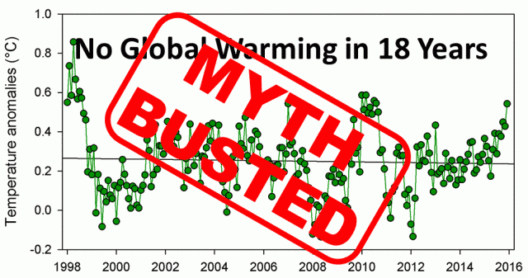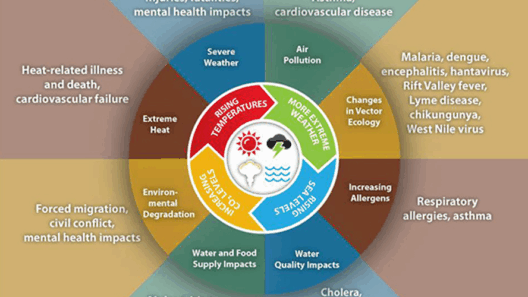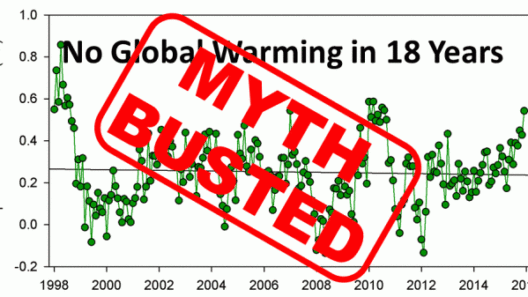The discourse surrounding global warming and climate change is often clouded by skepticism, misinformation, and a pervasive belief that those most vocal about these issues have ulterior motives, including financial gain. This line of thought has become a common observation: do environmental scientists profit from their focus on global warming? Although this question may appear innocuous at first, it opens up a plethora of deeper inquiries into the nature of scientific inquiry and the institutions that underpin it.
To begin, it is pivotal to recognize that environmental scientists do not operate in a vacuum. Their work is frequently funded by government grants, academic institutions, non-profit organizations, or private sector partnerships. These funding sources shape the objectives and outputs of climate research. In the United States, for example, federal agencies such as the National Oceanic and Atmospheric Administration (NOAA) and the Environmental Protection Agency (EPA) allocate billions each year to climate science. When scrutinizing the financial structures behind climate research, the question arises: is there an inherent incentive for scientists to exaggerate findings to secure these funds?
This perspective, though conceivable, is largely rebutted by the peer-review process underpinning scientific research. The rigorous evaluation by fellow scientists acts as a bulwark against the embellishment of results. Any significant claim made by a scientist must stand the test of scrutiny in order to be accepted by the scientific community. Hence, while funding can influence research priorities, rigorous peer review mitigates the risk of unsubstantiated claims being published solely for profit.
Another crucial dimension of this inquiry involves the motivations for scientists to engage actively with public discourse on climate change. Firstly, let us consider the ethical imperative. Many scientists enter the environmental field driven by a genuine concern for the planet. The deteriorating state of ecosystems, biodiversity loss, and increasing weather extremes are alarming realities that compel these professionals to inform the public. Through their advocacy, they aim to illuminate the consequences of human actions and foster an understanding of climate science among non-experts. To them, profit is not paramount; their commitment lies in the hope of fostering change and influencing policy for the greater good.
Nevertheless, it is essential to acknowledge that some scientists do receive compensation for consulting work or public speaking engagements. This is particularly true for prominent figures who have established themselves as authorities in the field. While this may lend a semblance of legitimacy to the notion that environmental scientists profit from their expertise, it obscures the broader context of their work. The fees charged for consulting or speaking engagements often correlate with their expertise, years of study, and the societal impact of their findings. In essence, their elevation to a position of influence is a testament to their significant contribution to an urgent global conversation rather than an innately selfish endeavor.
There is also a prevailing narrative that associates the urgency of climate change with a detrimental agenda of imposing restrictions on economic growth. Critics argue that scientists, through their warnings about global warming, inadvertently stifle industries and curb individual freedoms. This reflects a deeper underlying fascination: the ideological conflict between environmental stewardship and economic expansion. Many scientists advocate for sustainable practices not merely from a stance of admonition but as a pathway for innovation and new economic opportunities.
Examining the alternative motivations behind the skepticism sheds light on why such misconceptions persist. The implications of acknowledging climate change can be daunting. Asserting the reality of global warming necessitates confronting uncomfortable truths, ranging from resource depletion to social justice inequalities. For industries reliant on fossil fuels, accepting climate science could jeopardize their operations, creating a powerful incentive to discredit environmental scientists. This resistance can lead to the derailing of valid scientific inquiry, fostering an environment where personal attacks against scientists become commonplace.
Moreover, the phenomena of climate denial and misinformation highlight the complex interplay between science, public perception, and vested interests. Social, economic, and political entities may gain from perpetuating a narrative that trivializes scientific consensus. By reframing climate change as a hoax or exaggeration, detractors can successfully galvanize groups that feel threatened by potential regulatory changes, illustrating how profit motives can exist outside the confines of academia.
Ultimately, the skepticism surrounding the motivations of environmental scientists often reflects broader societal fears and anxieties rather than substantive evidence. When one examines the intricate tapestry of climate research funding, the ethical dilemmas at play, and the societal implications of environmental activism, it becomes evident that the motivations of scientists are far more nuanced than a mere pursuit of profit. Their commitment, while occasionally monetized through speaking engagements or consulting, is fundamentally rooted in a desire to avert an impending crisis and ensure a sustainable future for generations to come.
To disregard this commitment by framing it solely in terms of financial gain is to undermine the dedicated efforts of scientists worldwide. As we navigate the complexities of climate science and its ramifications, it is imperative to prioritize informed dialogue, embrace scientific integrity, and recognize those working tirelessly to safeguard our planet for the future.








